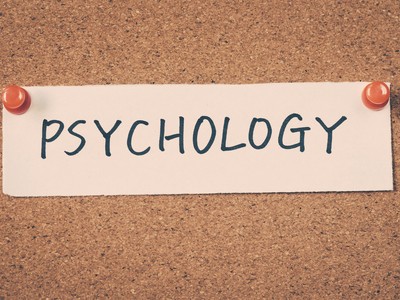
Struggling With Depression Psychologist Surfers Paradise (07) 5539 9798
Depression Psychologist Surfers Paradise

Introduction: Anxiety And Depression Therapy Psychologist Surfers Paradise
Anxiety and depression are two of the Anxiety And Depression Psychologist Surfers Paradise Near Me most common mental health disorders that people face today. While they may look like different conditions, they are often interconnected and can have a considerable influence on a person's overall wellness. In this short article, we will explore the connection between anxiety and anxiety, the symptoms associated with each condition, and what steps individuals can take to manage and get rid of these challenges.
Understanding Anxiety and Depression
What is Anxiety?
Anxiety is a natural reaction to tension or danger. It is defined by sensations of anxiousness, worry, and fear about everyday scenarios. While it is typical to experience anxiety from time to time, chronic anxiety can hinder daily activities and effect one's quality of life.
What is Depression?
Depression, on the other hand, is a state of mind condition that impacts how you feel, believe, and deal with daily activities. It surpasses regular sensations of unhappiness or grief and can persist for weeks, months, or even years. Depression can make it hard to function in various locations of life, including work, relationships, and self-care.
The Connection In Between Anxiety and Depression
Anxiety and depression typically go together. Many individuals who experience anxiety likewise battle with signs of anxiety, and vice versa. The link in between the 2 conditions can be attributed to a number of factors:
Chemical Imbalance: Both anxiety and anxiety are thought to include an imbalance of neurotransmitters in the brain, such as serotonin and dopamine.
Shared Hereditary Aspects: Research study recommends that there might be a hereditary predisposition for developing both stress and anxiety and depression.
Stressful Life Events: Terrible experiences or substantial life occasions can set off both anxiety and anxiety symptoms.
Negative Believing Patterns: Individuals with anxiety tend to have negative thoughts and fret exceedingly about future occasions. These thought patterns can add to the advancement of depression.
Physical Symptoms: Anxiety and depression can manifest with comparable physical symptoms, such as fatigue, sleep disturbances, and modifications in appetite.
Symptoms of Anxiety
Anxiety can manifest in various ways and might present different signs in each person. Some typical signs of stress and anxiety include:
Excessive Worry: Relentless and excessive fretting about daily situations, even when there is no evident reason for concern.
Restlessness: Feeling on edge or not able to relax, typically accompanied by physical manifestations like trembling or fidgeting.
Difficulty Focusing: Problem focusing or remaining present due to racing ideas or fixation with worry.
Irritability: Feeling easily annoyed or upset, sometimes without a clear cause.
Sleep Disturbances: Insomnia or uneasy sleep due to racing ideas or worries.
Physical Symptoms: Stress and anxiety can likewise manifest physically, causing symptoms such as quick heart beat, shortness of breath, lightheadedness, or gastrointestinal issues.
Symptoms of Depression
Depression can vary in intensity and presentation from person to individual. Some typical symptoms of depression consist of:
Persistent Sadness: Feeling sad, empty, or helpless for a prolonged period, often accompanied by tearfulness.
Loss of Interest: Losing interest in activities as soon as enjoyed and experiencing an absence of motivation.
Changes in Cravings: Significant weight-loss or gain due to changes in appetite or eating habits.
Fatigue: Feeling tired and doing not have energy, even after getting enough sleep.
Difficulty Focusing: Problem focusing, making choices, or remembering details.
Suicidal Ideas: In severe cases, anxiety can cause thoughts of self-harm or suicide. It is crucial to seek aid if you experience these thoughts.
How to Manage Stress And Anxiety and Depression
Managing anxiety and anxiety needs a thorough method that deals with both the physical and psychological elements of these conditions. Here are some methods that can assist:
Seek Expert Aid: Speak with a mental health specialist, such as a depression psychologist in Surfers Paradise, who can offer an accurate medical diagnosis and establish a customized treatment plan.
Medication: In some cases, medication might be recommended to assist manage symptoms of anxiety and depression. A qualified doctor can figure out if medication is necessary.
Therapy: Cognitive-behavioral therapy (CBT) and other evidence-based therapies can assist people recognize negative idea patterns, develop coping mechanisms, and improve total well-being.
Self-Care: Participate in activities that promote self-care, such as routine workout, practicing relaxation techniques (e.g., deep breathing or meditation), guaranteeing adequate sleep, and maintaining a well balanced diet.
Social Assistance: Connect to good friends, household, or support groups who can offer understanding and motivation throughout challenging times.
Avoid Substance Abuse: Drug abuse can get worse symptoms of anxiety and depression. It is necessary to prevent self-medicating with drugs or alcohol.
Frequently Asked Questions
- Anxiety is defined by excessive concern and fear about daily situations, while anxiety involves persistent feelings of unhappiness or hopelessness that affect everyday functioning.
- Yes, anxiety is considered a mental illness when it hinders daily life and causes significant distress.
- Signs of depression in males might consist of irritation, anger or aggression, increased risk-taking behavior, drug abuse, or physical signs like headaches or gastrointestinal issues.
- While there is no definitive treatment for anxiety and depression, they can be effectively managed and treated with the ideal combination of therapy, medication, and self-care strategies.
- Yes, depression is a mental disorder identified by relentless feelings of sadness, despondence, and a loss of interest in activities once enjoyed.
- Offer assistance and encouragement, listen without judgment, and motivate them to look for professional aid. Educate yourself about their conditions to better comprehend their experiences.
Conclusion
Anxiety and depression are complicated conditions that typically coexist and can substantially impact a person's well-being. Understanding the connection in between these two disorders is important for reliable treatment and management. By looking for expert help, practicing self-care, and building a strong support system, people can take steps towards overcoming stress and anxiety and anxiety and restoring control over their lives. Bear in mind that you are not alone in this journey, and there is wish for a brighter future.
Cause Of Depression Psychologist Surfers Paradise
MDD Meaning Psychologist Surfers Paradise
Surfers Paradise Chiropractic Centre-Dr. Bruce Whittingham
12 Thomas Drive, Surfers Paradise QLD 4217
(07) 5539 9798
https://surfersparadisechiropractic.com.au